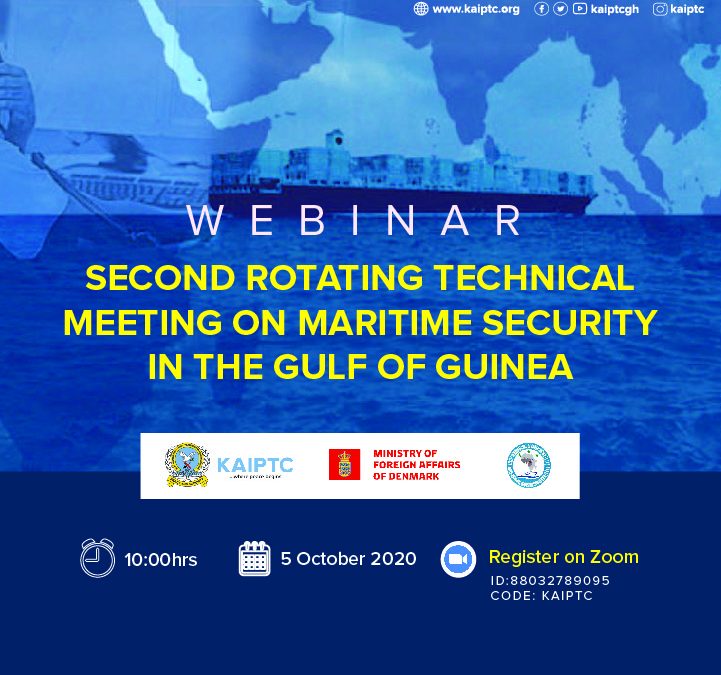
Date: 5th Oct. 2020
The Gulf of Guinea region represents a practically limitless Blue Economy potential offered by hydrocarbons, regional fisheries, shipping and tourism under the right circumstances. Nonetheless, the region has achieved notoriety for piracy and armed robbery at sea among other complex maritime crimes. In responding to the risks posed by maritime criminality, the region adopted the 2013 Yaoundé Code of Conduct (YCC).
Concerning the Repression of Piracy, Armed Robbery against Ships and Illicit Maritime activity in West and Central Africa. The Code also outlined a strategy by which regional governments could share information and coordinate more broadly. Thus the Yaoundé Architecture seeks to connect two regional information sharing and coordination centres in the wider region – CRESMAC for Central Africa and CRESMAO for West Africa through the Interregional Coordination Centre based in Yaoundé, Cameroon. Five operational zones span the wider region to coordinate maritime activities (Zones A to G). At the strategic level, ECOWAS and ECCAS oversee the activities of the entire structure. Together with the Gulf of Guinea Commission they have oversight responsibilities of maritime security in the GoG. Seven years into the adoption of the YCC there obviously has been some progress made in the implementation of the YCC. Some relate to the enactment of criminal laws in some countries, the operationalisation of a number of the MMCCs, training and coordination among the various stakeholders and the gradual awareness of the maritime domain. Nonetheless, there are still some gaps in the implementation of maritime strategies, trust-building and information sharing and law enforcement on maritime security.
Another layer of vulnerability has presented itself in the form of the COVID-19 pandemic in 2020, which has had a profound impact on the implementation of the YCC. It was therefore important to ascertain how the international and regional institutions are monitoring and coordinating maritime security in the GoG. To this end the technical meeting brought together the above listed institutions in an effort to find out their progress, successes and challenges in ensuring maritime security in the GoG. The project through these engagements seeks to offer platforms for continuous dialogue and networking of the various maritime actors in order to enable the operationalisation of the YCC.
Objectives
The primary objective of the Second Technical Rotating Meeting was to create the platform for regular peer discussions among regional actors such as ECOWAS, ECCAS, GGC and other relevant regional economic communities (RECs) of the African Union (AU) for ensuring awareness of and effective management of the maritime security domain in Africa. It also served as a strategy for connecting the actors in the GoG countries and the sub-regional arrangements of ECOWAS and ECCAS. This meeting also focused on progress made so far by the oversight institutions in implementing the respective strategies in their domain. In this regard, the meeting focused on bringing together representatives of the ICC, ECOWAS, ECCAS, CRESMAC and CRESMAO. A number of issues were discussed including the following:
•Implementation of the YCC – Information sharing and trust building.
•Operationalising the ECCAS Maritime Strategy.
•Enhancing maritime security collaboration under the YCC: Strategies and National focal points in ECOWAS and ECCAS.
•Prosecuting maritime crimes in the GoG – Challenges and the way forward.
•Enhancing international collaboration on maritime policing – best practices

